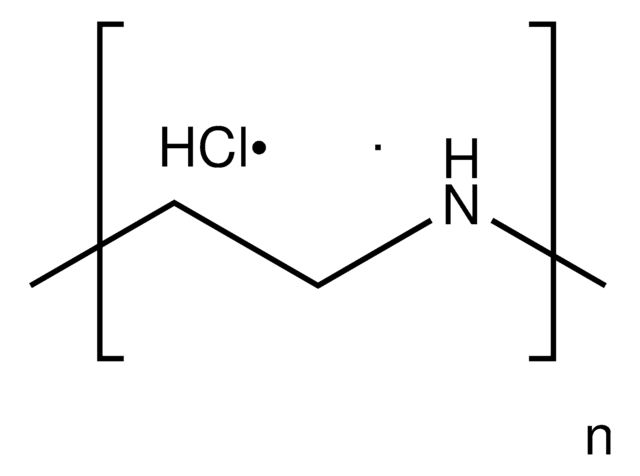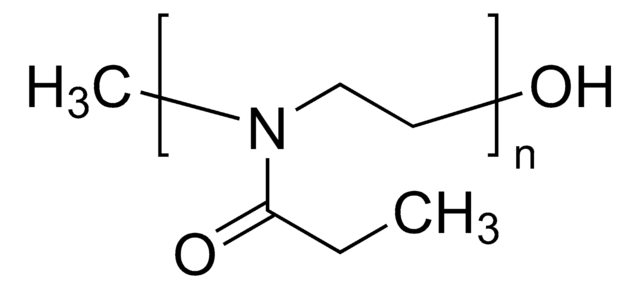765090
Polyethylenimine, linear
average Mn 10,000, PDI ≤1.3
Sinónimos:
PEI
About This Item
Productos recomendados
form
solid
Quality Level
mol wt
average Mn 10,000
mp
48-53 °C
PDI
≤1.3
storage temp.
2-8°C
InChI
1S/C2H5N/c1-2-3-1/h3H,1-2H2
InChI key
NOWKCMXCCJGMRR-UHFFFAOYSA-N
¿Está buscando productos similares? Visita Guía de comparación de productos
Categorías relacionadas
General description
signalword
Warning
hcodes
Hazard Classifications
Eye Irrit. 2 - Skin Irrit. 2
Storage Class
11 - Combustible Solids
wgk_germany
WGK 3
flash_point_f
Not applicable
flash_point_c
Not applicable
Certificados de análisis (COA)
Busque Certificados de análisis (COA) introduciendo el número de lote del producto. Los números de lote se encuentran en la etiqueta del producto después de las palabras «Lot» o «Batch»
¿Ya tiene este producto?
Encuentre la documentación para los productos que ha comprado recientemente en la Biblioteca de documentos.
Los clientes también vieron
Artículos
Delivery of Nucleic Acids Using Polymers
Gene therapy has become one of the most discussed techniques in biomedical research in recent years.
Professor Yoshiki Katayama (Kyushu University, Japan) discusses recent advances in drug delivery systems and strategies that exploit the EPR effect, with a special focus on stimuli-responsive systems based on novel materials.
The CRISPR/Cas9 system has recently emerged as a highly specific, efficient, and versatile gene editing technology that can be utilized to build disease models and correct diseased genes. Safe and effective delivery vectors for the CRISPR/Cas9 system are in critical need to enable clinical development and future applications of CRISPR/Cas9 systems. Professor Yang Liu summarizes recent progress in nonviral nanoparticle approaches for CRISPR/Cas9 delivery.
Nuestro equipo de científicos tiene experiencia en todas las áreas de investigación: Ciencias de la vida, Ciencia de los materiales, Síntesis química, Cromatografía, Analítica y muchas otras.
Póngase en contacto con el Servicio técnico






